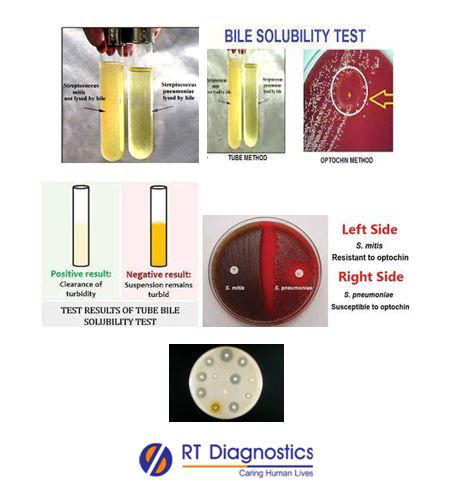Culture & Sensitivity - Bile
Bile is a biological fluid that involves in the process of digestion (fat), which is synthesized by the liver. Culture & Sensitivity test on bile fluid (patient’s sample specimen) helps in the analysis of any microbial growth in a suitable culture medium (enriched with Bile Fluid as a source of nutrition for the microbial growth) in suspected patient’s sample i.e bile specimen that helps to diagnose for gall bladder infection.
Culture& Sensitivity – Bile:
Why Culture and Sensitivity (Bile) Test?
CLINICAL INFORMATION
Bile is a (dark green to yellowish-brown) fluid that is synthesized and secreted by the liver that which is stored in the gall bladder. Bile contains mostly cholesterol, bile acids, bile salts, bilirubin along with water and other salts, minerals like sodium, potassium, copper, and other metals. Thus bile acts as a surfactant to help to emulsify the lipids in the food. Bile salt anions are hydrophilic-negatively charged, on one side (facing outward) and hydrophobic on the other side (the hydrophobic side towards the fat) and hence consequently they tend to aggregate around droplets of lipids (triglycerides and phospholipids) to form micelles. Culture and Sensitivity (Bile) test helps to detect underlying pathologies like the presence of infections (bacteria, virus or fungi, etc) or its associated diseases/prevailing conditions (stone/calculi), inflammation, and/or neoplasm of the gall bladder that lead to disorder(s) that is caused within the biliary system. The main objective of performing this test is to measure the pathogenic organism and its growth in the bile on the whole. Hence the bile sample specimen of the suspected patient is sent to the laboratory for culture (for differential diagnosis to rule out if it is of bacterial, viral, or fungal origin, etc) and sensitivity test i.e sensitivity to antibiotics – is also performed (to check for resistant strains if any –to prescribe effective medications). Other tests for confirmatory studies that include ESR, CRP, CBC, X-ray studies (radio-opaque stones such as calcium oxalate, etc), ultrasound, CT Scan, MRI, ERCP- Endoscopic Retrograde Cholangio-Pancreatography – which combines X-ray and the use of an endoscope (a procedure to diagnose and treat problems in the liver, gall bladder, bile duct, and pancreas).

General Instructions:
Sample Requirement: Specimen - Blood sample collected from the vein. Test Preparation: None.
NOTE - Sample for specimen collections may vary based on the patient’s condition/cases according to the patient’s presenting complaints/signs or symptoms:
SPECIMEN REQUIREMENT (Special or Rare Cases) - As instructed and guided by Physician / Clinician / Pathologist / as per Laboratory’s requirements, according to procedures and protocols.
Sample Requirement: Blood Sample taken from the vein
Test Preparation: None
This Multi-Specialty Clinical Referral Laboratory RT DIAGNOSTICS provides precise and accurate tests with an extensive range of testing services to the medical centers to help in the diagnosis and identification of pathology in the test specimens for infectious diseases and also to evaluate the function of organ systems of the patient. It prevents further complications and helps to stabilize and restore health to near normalcy at the earliest without delay.



